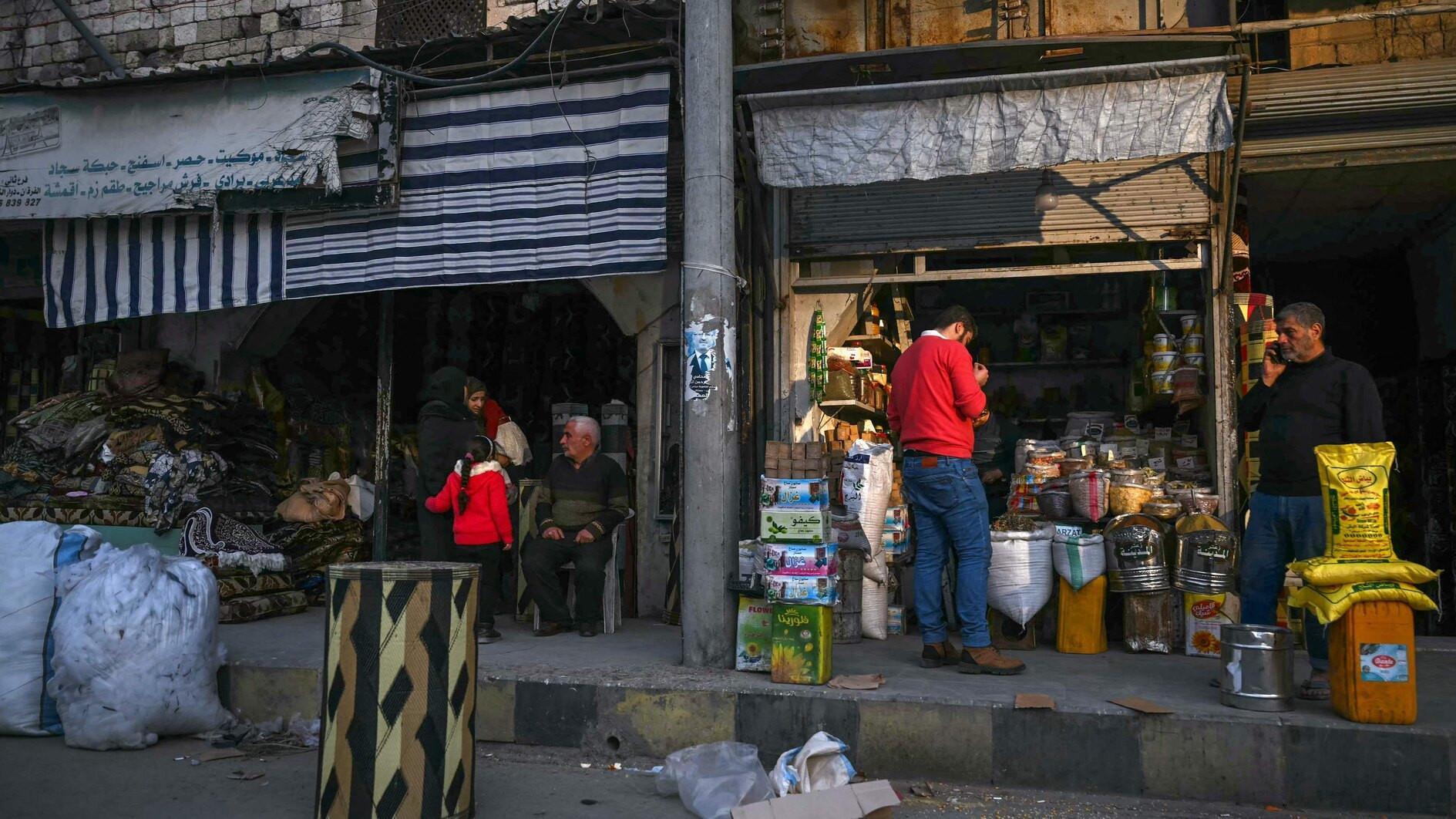
People buy necessities from shops on a market street near the citadel in Syria's northern city of Aleppo on Dec. 11, 2024.
In one of the few open shops on a main street in downtown Aleppo, Syrian shopkeeper Ramadan Dali wields his feather duster with gusto, standing on tip-toes so he can reach the windows.
Dali, a 70-year-old wearing a black felt hat, is ready for customers to come back, along with the hope that has returned to the streets of Syria's second largest city since it was retaken by rebels on their way to topple president Bashar al-Assad.
Aleppo was once Syria's economic capital, a vibrant northern city of two million people, popular with tourists and archaeologists.
But the city became the battleground of some of the fiercest fighting during the country's civil war, and was captured by Assad's forces in 2016 with support from Russia.
Aleppo still bears the scars from this violence, with many buildings standing empty, dusty curtains flapping in their cracked facades.
But after Aleppo became the first city retaken by the lightning rebel offensive that began on Nov. 27, life has been slowly coming back to the streets, where there is no longer any visible military presence.
Traffic is starting to pick up, and in shawarma stalls and coffee stands, people seem keen to return to some kind of normal.
"It won't happen in a day or two, but within two or three months all the other stores will reopen," said shopkeeper Dali.
"We are starting to feel safe," he said.
Some other vendors were selling flowers, sweets and corn to the evening crowd around the medieval citadel that dominates Aleppo's old city.
"We feel free and safe," said the 43-year-old, who is waiting for school to restart for his five children. "They said maybe in a week's time."
But his biggest concern remains the soaring price of food, which he said forces him to work "15 hours a day."
This concern was shared by many.
Aleppo is not suffering shortages, but skyrocketing prices mean that shopkeepers prefer Turkish lira to counting the thick stacks of Syrian pounds needed to buy just one sandwich.
Near some shops, a group of women who had just returned for their first day back at work were also worried about prices.
The employees of the Social Affairs Ministry said they did not know when they would be paid next or by whom.
Juman Khilaly, a 40-year-old wearing a white scarf, said that "there is still a lot of uncertainty."
Faced with such uncertainty, she described feeling both hopeful and worried.
"And everything is so expensive," she added.
Susan Kebbewar, 36, pointed out that "we have just been through three days of aerial bombardments, which was scary".
"But we have been watching the news and waiting for this moment for so long," she added.
She emphasised that "as a woman" she was hoping for this change so she can assert her rights.
The country's new leaders did not frighten her -- quite the opposite.
"We felt cut off from the world," she said.
"Today our country is free again."